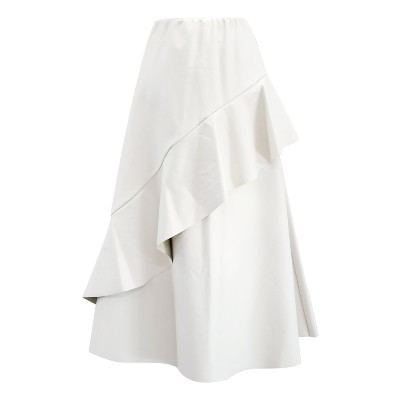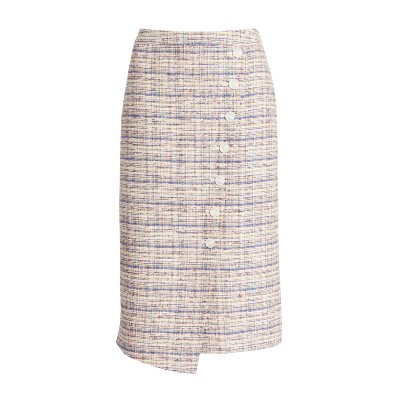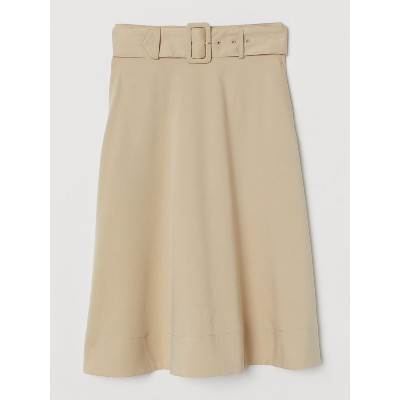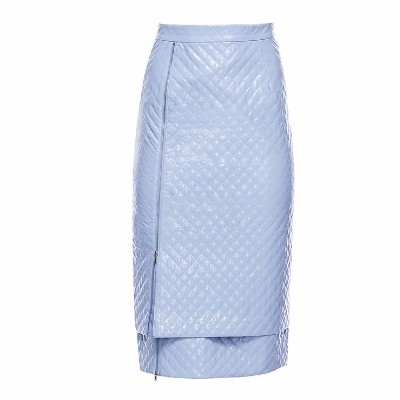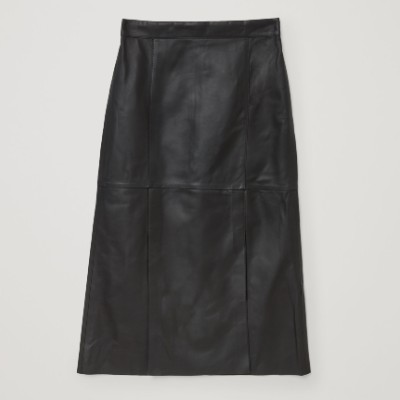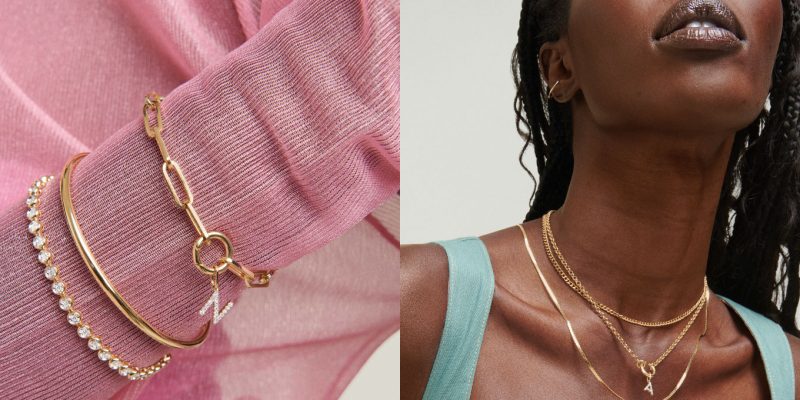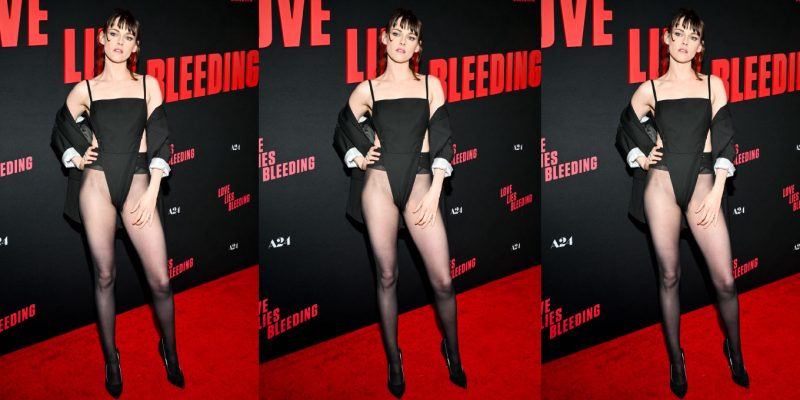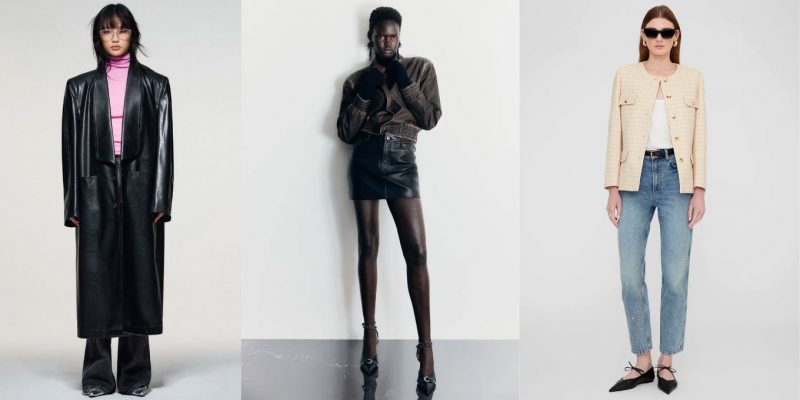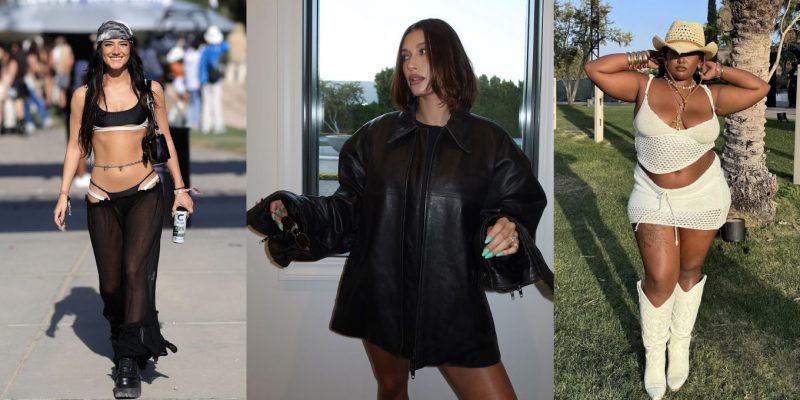Trends
Why You Should Invest in a Skirtsuit This Fall
The remix of the skirtsuit is equal parts powerful and playful.
by : Caitlin Agnew- Aug 19th, 2020
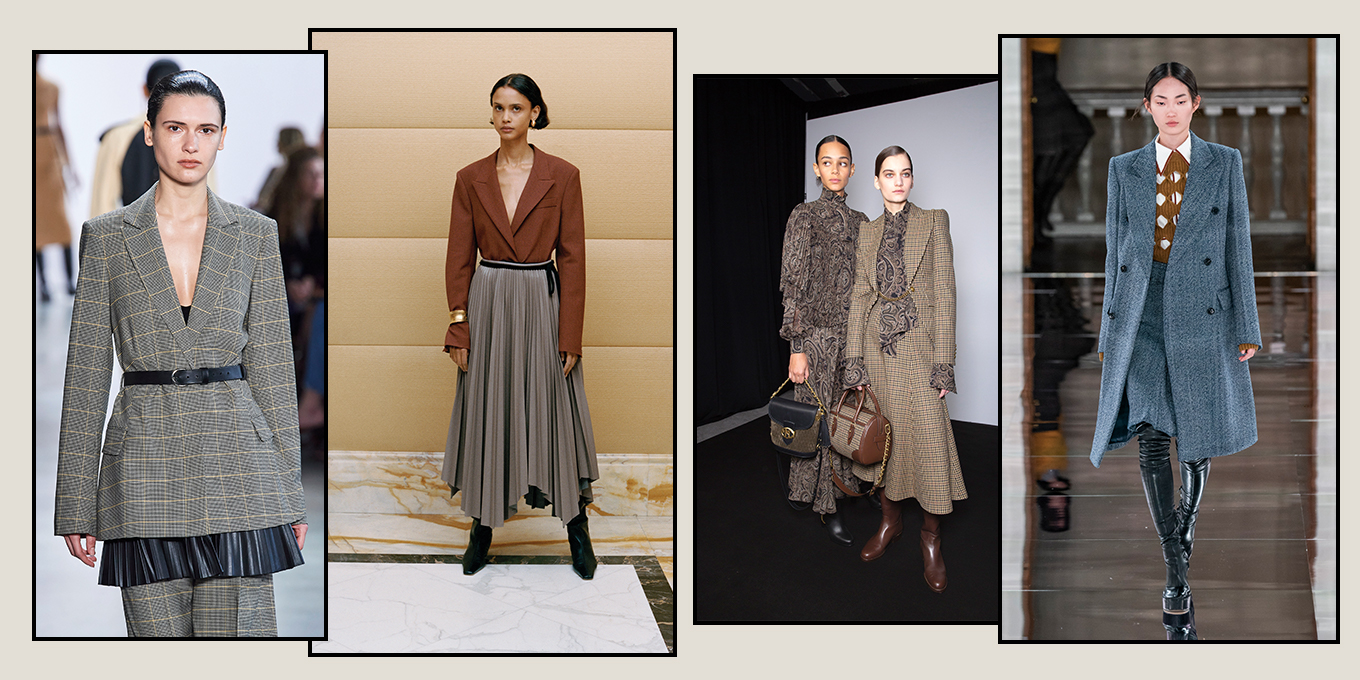
Jonathan Simkhai, Nanushka, Michael Kors and Victoria Beckham
Princess Diana’s pink Versace skirt and blazer, Ally McBeal’s kooky miniskirts, Hilary Banks’ blazers in The Fresh Prince of Bel-Air…of all the iconic 1990s trends to make a comeback, the skirtsuit has been sadly overlooked – a sartorial wrong that’s finally being put right this season. But instead of it being another prim, matchy-matchy moment, designers have maxed out the skirtsuit’s potential for joyful self-expression, disrupting its association with a homogenous workwear uniform in favour of a celebration of femininity, individuality and power.
On fall/winter 2020/2021 runways, everyone from Michael Kors to John Galliano (at Maison Margiela) put their own signature spin on the skirtsuit. (That would be preppy and postmodern, respectively.) Luxury houses Fendi and Hermès both presented leather versions, while LVMH prizewinner Thebe Magugu’s soft-pink style contributed to the South African designer’s social commentary on women’s rights. Jonathan Simkhai updated the classics with a swingy pleated black skirt worn with a cropped trench coat, and Canadian Andrew Coimbra added sex appeal to his skirtsuit with a thigh-grazing slit. Unlike the body-con cuts of yore, hemlines across the board hovered between the knee and the ankle, while toppers ran the gamut from a shearling-lined pilot jacket at Valentino to loose-fitting blazers at Chloé to a moto-inspired option at Eckhaus Latta. According to Tyler Franch, vice-president, fashion director at Hudson’s Bay, this season’s take is more about letting loose than buttoning up. “Suits are getting softer,” he says. “It’s less about nipped waists and structured shoulders and more about relaxed jackets and easy bottoms.” He recommends pairing a ’90s-inspired blazer with a pleated maxiskirt so there’s no fear of channelling Sigourney Weaver in 1988’s Working Girl. “I think it’s about relaxed fits and keeping the look clean and simple,” he adds.
“In fact, the history of the skirtsuit runs parallel to the social and professional empowerment of the Western woman.”
It’s an approach that fits nicely with today’s creative-casual gig economy, where wearing a skirtsuit may seem restrictive. In fact, the history of the skirtsuit runs parallel to the social and professional empowerment of the Western woman. The design traces its origins to 19th-century Europe, when women wore tailored jackets with long skirts for activities like horseback riding and archery. (When the style was adopted outside of this sporting realm, it paved the way for athleisure.) Womenswear maverick Coco Chanel is generally credited with creating the contemporary women’s suit, one of her many designs that skipped restrictive cuts in favour of flexible, military-inspired tailoring and forever changed fashion. And when women joined the corporate rat race en masse in the 1980s, the concept of power dressing took off, with Giorgio Armani’s shoulder-padded suits setting the bar.
In Canada, that honour belongs to Alfred Sung. Founded in 1980, the Toronto-based brand recently added a customization program to its offerings, including made-to-order skirtsuits. “With that juxtaposition of bare and covered, a skirt can add drama where pants can’t,” says merchandise director Tamara Mimran, who runs the label with her brother Jordin, the brand’s creative director. (Their father was one of the label’s co-founders.) It’s a style she hopes that her clients will request more often. “Skirtsuits say femininity in your power,” she says. And when it’s made just for you, there’s no better form of self-expression.
This article originally appeared in the September 2020 issue of ELLE Canada, which is on newsstands across Canada on August 17 and on Apple News+. Subscribe here.
Shop the skirtsuit:
Storets Ruffled Pleather Skirt ($82, storets.com)
Halogen Tweed Pencil Skirt ($79, nordstrom.com)
Hilary MacMillan Double Layered Zippered Skirt ($96, hilarymacmillan.com)
Cos Nappa Leather A-Line Midi Skirt ($530, cosstores.com)
Newsletter
Join our mailing list for the latest and biggest in fashion trends, beauty, culture and celebrity.
Read Next
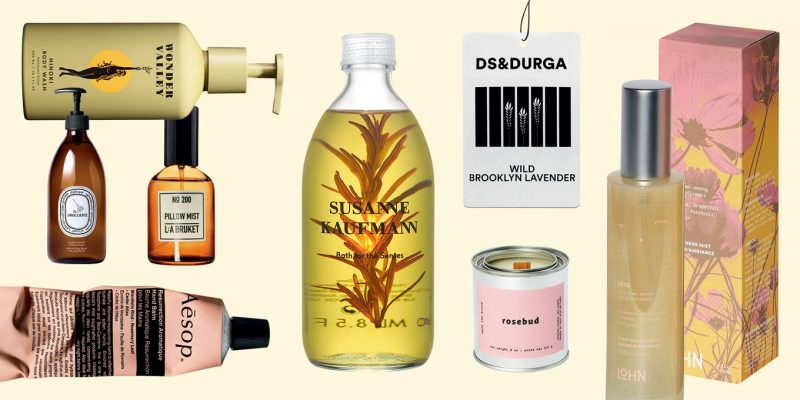
Beauty
10 Luxe Household Scents That Smell Amazing
Including Diptyque dishwashing liquid, Canadian-made room sprays and so much more.
by : Katherine Lalancette- Apr 17th, 2024
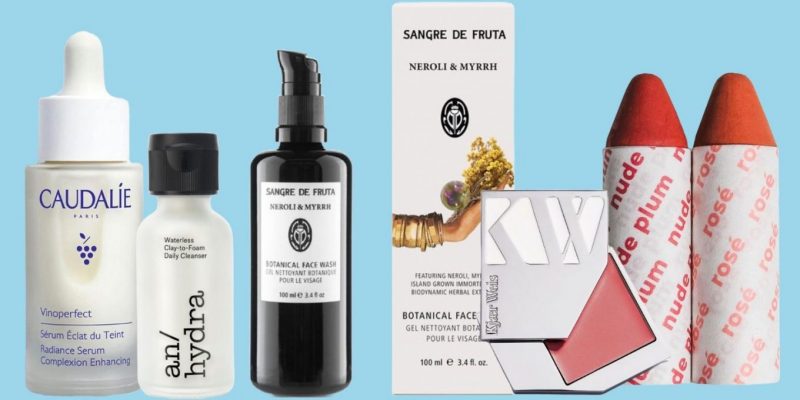
Beauty
10 Sustainable Beauty Brands to Know About This Earth Month
Refillable, Waterless and sustainable, oh my!
by : Allie Turner- Apr 17th, 2024

Beauty
Tested and Approved: Your New Hydrating Skincare BFF
This new product has all of your skin’s thirst-quenching needs covered.
by : ELLE Canada- Apr 17th, 2024

